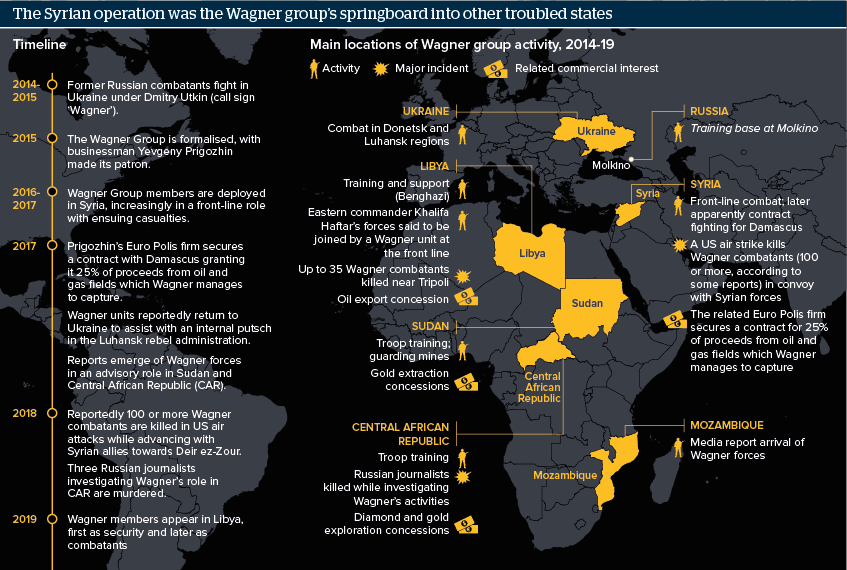Wagner force offers Russia arm's-length deniability
An ad hoc volunteer force has gone corporate, going where no one else will
Source: Meduza; The Bell; RFE/RL; Carnegie Russia; Moskovsky Komsomolets
Outlook
The Wagner Group has been around for five years and tries to maintain a secretive existence despite being spotted in a growing number of African states. Forged during the early phase of the eastern Ukraine conflict, it filled a niche between regular Russian troops and out-of-control Moscow-backed paramilitaries.
Wagner is a private military company (PMC) too engaged in combat to count as an auxiliary security force. Assessments range between a well-equipped elite unit and inadequately led cannon-fodder. Deployments in Syria, Sudan and the Central African Republic are associated with oil or mineral extraction contracts secured by companies associated with businessman Yevgeny Prigozhin. He and his companies, including Wagner, are under US sanctions.
Impacts
- Wagner offers Moscow a flexible, deniable foreign policy tool.
- It can be inserted into chaotic conflicts or complex political situations where Moscow chooses not to take sides.
- While Wagner deaths do not count as military casualties, they are still a source of public concern despite the secrecy surrounding them.
- Prigozhin-linked companies reportedly also offer ‘softer’ services such as political consultancy for African leaders.
See also
- Russia's CAR engagement trials hard and soft power - Mar 16, 2021
- Russian mercenary deployments are ad hoc opportunism - Dec 16, 2019
- Elections will sharpen US focus on Libya - Dec 10, 2019
- Russia may count cost of unleashing mercenaries - Nov 22, 2019
- Libya groups will use 'Islamist' label for propaganda - Oct 23, 2019
- Russian private militaries are contentious but useful - Jan 11, 2019
- More graphic analysis
